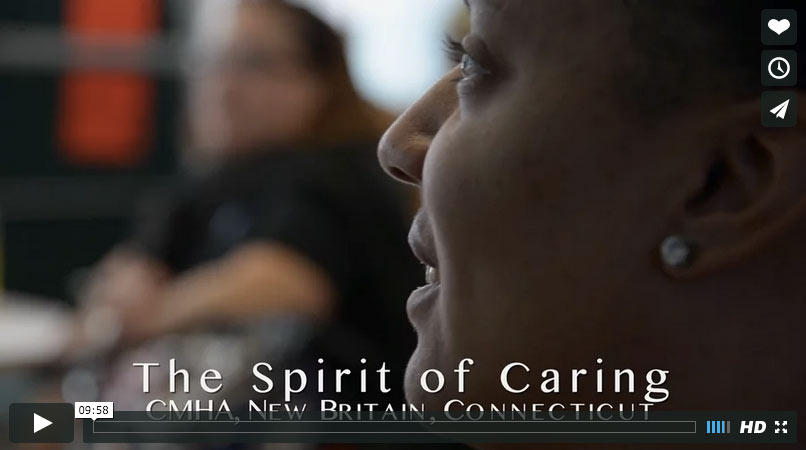Communicators often get the opportunity – some would say responsibility – to tell a story that can affect the lives of a number of people. Professionals either do the work pro bono or offer nonprofits a substantial discount. AMCP judges see numerous wonderful projects where it’s clear the entrants are entirely invested in the cause.
One such example was independent storyteller Annalisa Russell-Smith‘s videos for Community Mental Health Affiliates. We recently caught up with the owner of Local Planet Productions to discuss the project, which just received a Platinum Award in the Hermes Creative Awards.
CMHA – The Spirit of Caring from Annalisa Russell-Smith on Vimeo.
Where did these videos appear for CMHA?
The main feature piece, “The Spirit of Caring,” was first shown at CMHA’s annual meeting, a gathering of supporters, legislators, fundraisers and community members in October 2015. There wasn’t a dry eye in the house as each of the clients who appeared in the film took a bow. All the films are available on the CMHA website and are used for educational purposes in the community, for training and recruiting new staff, and for fundraising and lobbying. The shorter profiles are used on social media, especially during the various rounds of state budget cuts.
How did you get involved with CMHA, and what was their objective for this project?
Mental health is a subject too scary for many to discuss and yet one in four people has a diagnosable mental health condition, so raising awareness is a big priority for CMHA to break down some of the barriers preventing people from seeking help.
I got involved because I saw the amazing work they are doing in the community, but I could see how difficult it is to even begin explaining the complexity of their programs and the many kinds of problems they help people deal with in order to live productive lives. So I pitched the idea of doing a series of short, shareable films with the personal stories of people whose lives have been affected in very positive ways by CMHA to their executive team.
Mental illness and addiction are complex and often misunderstood. Why did you choose the approach you did for your videos?
Tackling complex subjects is what I do best, because at the end of the day it’s all about breaking them down into parts that are more easily understood, and there’s no better way to do that than by talking to people with first-hand experience of the problem. It’s a very personal approach and relies upon building trust and the kind of rapport which allows the person being interviewed to simply be themselves.
Addiction from Annalisa Russell-Smith on Vimeo.
These topics are sobering. Did you need to prepare yourself mentally to work on this?
I agree, the topics are very sobering, but I’m not afraid to sit down and hear what someone has to say. Being able to simply listen to someone is often the most important part of the work I do.
The kind of preparation I do is much more about research to gain a better understanding of the subject so I can find ways to tell the story that needs to be told. For example, I learned all I could about paranoid schizophrenia by reading and talking with experts in the field in order to ask the kind of questions that would enable me to explain things through the eyes of someone living with paranoid schizophrenia. I researched addiction in the same way.
What was the most challenging aspect of this project?
As with anything filmed in documentary style, nothing is guaranteed because you’re filming real life as it happens rather than actors with a script! So the most challenging aspect of this project was ensuring I had enough material to truly give the viewer an understanding of not just of the company but of the people who shared their stories with me.
What do you hope viewers of your videos walk away with?
I hope viewers walk away with a little more understanding of why our mental health is just as important as our physical health. Once that starts to happen, perhaps the whole subject will be a little less scary to people.
View all of Annalisa’s videos on Vimeo.



 Follow
Follow


 Giving back to the community is something many companies do, but how many businesses serve their local citizens every week? And how many have been doing that for more than four years?
Giving back to the community is something many companies do, but how many businesses serve their local citizens every week? And how many have been doing that for more than four years?
 With rapidly changing technology, public relations and marketing firms have to constantly evolve to achieve effective results for their clients. Adapting is the only way a company can ensure future success.
With rapidly changing technology, public relations and marketing firms have to constantly evolve to achieve effective results for their clients. Adapting is the only way a company can ensure future success.